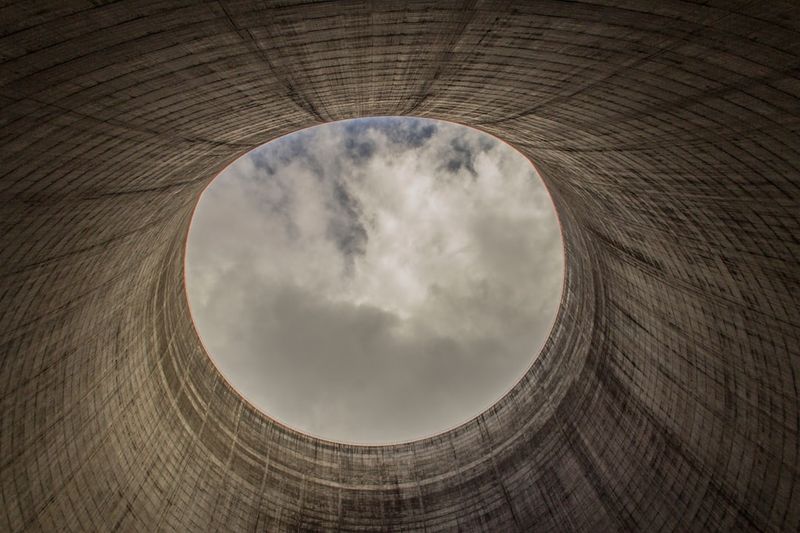The Life and Legacy of J. Robert Oppenheimer: Exploring Nuclear Weapons and Their Impact on the World
Introduction
Seventy-eight years ago this month, the world entered the atomic era with the detonation of the first-ever nuclear weapon at the Trinity test site in New Mexico. The man leading this historic development was physicist J. Robert Oppenheimer, often referred to as the “father of the atomic bomb.” As Christopher Nolan’s film “Oppenheimer” hits theaters, it prompts us to examine the life and legacy of this complex figure and delve into the impact of nuclear weapons on national security and global politics.
Oppenheimer’s Role in the Development of Nuclear Weapons
J. Robert Oppenheimer played a pivotal role in the development of the first nuclear weapons as the head of the Los Alamos National Laboratory during World War II. While Oppenheimer is often given sole credit, it is important to acknowledge that nuclear programs are collaborative efforts involving numerous scientists and politicians. Nevertheless, Oppenheimer’s leadership and expertise were instrumental in bringing together the minds and resources necessary for the assembly of the world’s first nuclear bombs.
The Transformation of National Security and Foreign Policy
The invention of the atomic bomb revolutionized the way we think about national security and foreign policy. Nuclear weapons, with their unprecedented destructive power, changed the dynamics of international relations. The sheer magnitude of nuclear forces made the idea of engaging in war with a nuclear-armed country virtually unthinkable. The presence of nuclear weapons, therefore, may have served as a deterrent during the Cold War, preventing open conflict between the United States and the Soviet Union.
The strategist Bernard Brodie famously remarked that the U.S. atomic bombing of Hiroshima rendered his previous writings on military strategy obsolete. This statement captures the profound impact nuclear weapons had on national security doctrines, forcing policymakers and strategists to confront an entirely new reality.
Evolution of Nuclear Weapons Technology
At the time of their initial development, the atomic bombs created by Oppenheimer and his team were fission bombs, which used nuclear fission to release a massive amount of energy. However, subsequent advancements led to the creation of thermonuclear weapons, commonly known as hydrogen bombs. These weapons have significantly greater destructive power by utilizing a fusion reaction triggered by a fission bomb.
Modern nuclear arsenals consist of a range of capabilities, including low-yield battlefield weapons and massive thermonuclear bombs that can wipe out entire cities. The largest thermonuclear weapon in the current U.S. arsenal, the B83, could cause an estimated 1.8 million fatalities if detonated above a densely populated area like New York City. Comparatively, the bomb dropped on Hiroshima claimed the lives of approximately 264,000 people. These developments have altered the nuclear policy landscape and intensified efforts to ensure the security and nonproliferation of nuclear weapons.
Modern Nuclear Security Efforts
In the wake of the use of nuclear weapons during World War II, concerns over the rapid proliferation of nuclear weapons emerged. However, remarkable global efforts, led by the United States and supported by various nonproliferation treaties and bilateral agreements, have slowed the spread of nuclear weapons. Today, only nine countries possess nuclear weapons, demonstrating a relatively slow pace of proliferation compared to early fears. The United States continues to oppose the international spread of nuclear weapons by supporting multilateral nonproliferation treaties and implementing measures such as economic sanctions and security assistance.
Oppenheimer’s Complex Legacy
J. Robert Oppenheimer’s legacy is undeniably complex due to his central role in the creation of nuclear weapons. On one hand, some argue that nuclear weapons have contributed to a more peaceful world by making warfare prohibitively costly. This perspective suggests that the destructive potential of these weapons has served as a deterrent, preventing major conflicts between nuclear-armed states. However, there is also a downside to this legacy. Living in a world where the catastrophic consequences of a single accident or miscalculation could endanger the entire globe is an inherent risk and a sobering reminder of the devastating power of nuclear weapons.
In conclusion, the dramatized portrayal of J. Robert Oppenheimer’s life in Christopher Nolan’s film “Oppenheimer” provides an opportunity to reflect on the profound impact of nuclear weapons on global affairs. As we navigate the complexities of nuclear security in the modern era, understanding Oppenheimer’s role and the ongoing efforts to prevent the spread of these powerful weapons helps us grapple with the challenges and responsibilities that come with possessing such technology.

<< photo by Jakob Madsen >>
The image is for illustrative purposes only and does not depict the actual situation.
You might want to read !
- The Clash of the Warriors: McGregor vs. Robles – Broadcast Time and Unveiling the Boxing Rivalry
- Deepest Breath: The Inspiring Journey of Alessia Zecchini and Stephen …
- The Enigmatic Journey of J. Robert Oppenheimer
- “Beth Dutton Unite: The Birth of a Yellowstone-Inspired Festival”
- “Deep Dive: Exploring the Expansion of Ulez and its Impact on London’s Vehicle Owners”
- Unraveling the Tragedy: A Deep Dive into the Titan Submersible Disaster and Search Mission




